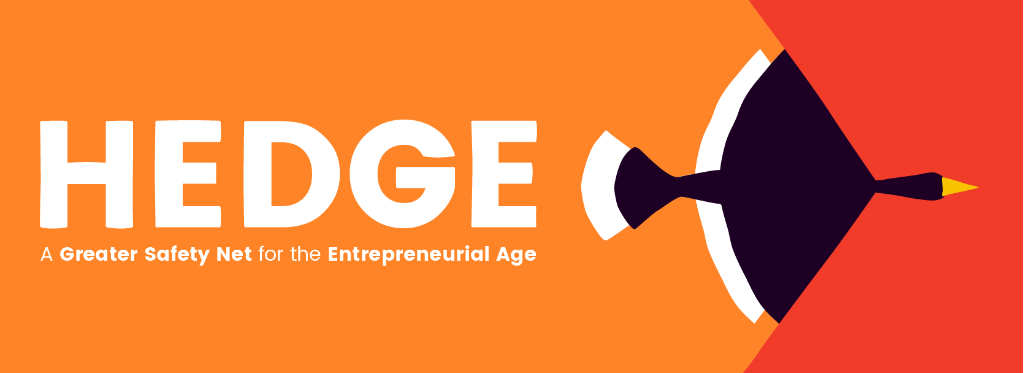
Dear all,
We’ve been working on my book’s graphic identity. You can see how things are going in the graphics above and below. And as you’ll note, I seized the opportunity to upgrade this newsletter. 🎨
Meanwhile, my firm The Family is about to celebrate its 5th birthday. It’s been quite a ride, about which we’ll share more (graphic) details soon. But we still have many challenges ahead of us. And among the many fronts on which progress is lagging behind is the place of women in the startup world.
There are impressive women entrepreneurs in The Family, like Shanty Baerhel of Instagram-powered Shanty Biscuits, Hind Elidrissi of Wemind (insurance for freelancers), Anahi Nguyen of L’Habibliothèque (renting fashion), Benedetta Arese Lucini (former Uber manager in Italy) of Oval Money (technology to help you save automatically), and Emilie Bellet of Vestpod (personal finance tips for women). But men still occupy the lion’s share of our portfolio, and so we recognize that this is still unfinished business.
At the same time, Europe is witnessing the rise of top female executives in fast-growing tech companies, such as Marieke Flament of Circle; in venture capital, with Marie Ekeland of Daphni; and in tech policy, with European antitrust Commissioner Margrethe Vestager leading the way.
What’s more, women have built up an edge in thought leadership, with prominent Europe-based thinkers such as Carlota Perez and Mariana Mazzucato, as well as a string of tough, influential journalists who are at the forefront when it comes to deciphering the current transition. To name just a few writing for the Financial Times alone, there’s Sarah O’Connor (employment correspondent), Izabella Kaminska (head of FT Alphaville), and Rana Foroohar (author of Makers and Takers).
Within our team, views differ about how to move forward in this slowly changing context. Some think that we should still be implementing radical measures. Others are discouraged by how much technology seems to be culturally tilted towards men. It is true that in our experience, women have been quicker to bow out when confronted with the harsh world of entrepreneurship. In startups, as in every part of the economy, we have to confront deeply ingrained behavioral differences such as those pointed out by Sarah O’Connor in a recent column about women in the gig economy.
My own view, however, is that progress is going to accelerate in the coming years due to many factors:
The #MeToo movement, while it still has a long way to go, could end up being a game-changer. This can be seen with the fact that Steve Bannon himself (former chief strategist in Trump’s White House) has talked of an “anti-patriarchy movement”, which he thinks is “going to unfold like the Tea Party, only bigger”. As explained by Helen Lewis in the New Statesman, “the Internet has done something incredible: it has lowered the barrier to speaking out by showing people just how many others have similar stories to tell.”
Social media is a most powerful tool when it comes to empowering women. These networks are rightfully considered as havens for sexist trolls. But they can also be harnessed on the other side. In this short story about young Indian prodigy Mohini Dey, I noted that seeing a woman play bass guitar was close to impossible in the pre-Internet era. But now with YouTube and Instagram, I can entertain my 9-year-old daughter with performances by incredible female bass players such as Julia C. Hofer, Kinga Glyk, or the veteran Rhonda Smith. Talk about role models! (She also likes to check out drummer Meytal Cohen.)
We have a much better grasp of the many tools and methods that can be used to promote diversity and gender equality. In this recent article about behavioral economics, my wife Laetitia Vitaud discusses how social science helps us to spot patterns that contribute to discriminating against women and correct biases so as to promote them instead. In another, What If Women Learned to Ask?, she explains how managers can avoid courses of action that so many times entrap women on the losing side of professional opportunities.
The rise of women echoes gradual but sure changes in the realm of sexuality. Cindy Gallop is a pioneer in promoting “social sex”—the idea that the more at ease we are talking about sex and actually showing real-life sex, the more women will regain the advantage in their overall relationship with men. This is an idea that Laetitia and I discussed in our 2016 paper We Want More Sex (Startups)—and a challenge that innovators such as Cindy are helping to tackle.
Finally it only helps that most jobs with a bright future in the Entrepreneurial Age are primarily occupied by women, especially at the middle and the bottom of the income ladder. Indeed with the rise of proximity services at the expense of manufacturing, the working class is less and less masculine, as we’re reminded by this article.
In a way, the crisis of the age of the automobile and mass production can be deemed the crisis of men. They dominated the old economy so much that their social advantage might be bound to disappear with it. Now we’re entering a new era in which men emerge as frustrated and uneducated (such as Trump and those who voted for him) or hold onto power because they’re older (but will soon be fading out).
Meanwhile, women are the ones rising, working harder and climbing up faster. It’s a trend well embodied by my cofounder Alice Zagury, CEO of The Family; Erika Batista, our director in Paris; and Annabelle Bignon, CEO of Lion (our Paris-based subsidiary company specialized in professional training). It’s high time we all get on board and turn this nascent trend into the pro-women tide that it should be.
Here are other interesting articles on the subject:
The woman behind Women’s Equality (an article about Catherine Mayer, whom I recently met in London, and her founding the UK Women’s Equality Party—by Michael Goldfarb, January 2015)
Single Women Are Our More Potent Political Force (by Rebecca Traister, February 2016)
How Women Won a Leading Role in China's Venture Capital Industry (by Shai Oster and Selina Wang, September 2016)
This Is What Uber Needs to Do to Save Itself (by Cindy Gallop, June 2017)
Didi Chuxing took on Uber and won. Now it's taking on the world (about Jean Liu, one of the most powerful women in Chinese tech—by James Crabtree, February 2018)
Women Are Taking Over the Fastest-Growing Jobs (by Justin Fox, February 2018)
Dirty Sexy Money: Cindy Gallop Smashes Another Glass Ceiling (by Cindy Gallop, March 2018)
Warm regards (from London, UK),
Nicolas

I'm a cofounder & director of The Family. This is a newsletter on entrepreneurship, finance, strategy, and policy. Each week, I'll send insights and ideas related to current events as well as my latest work, including the writing of my new book HEDGE: A Greater Safety Net for the Entrepreneurial Age. If you were forwarded this newsletter and you like it, you can subscribe here.

